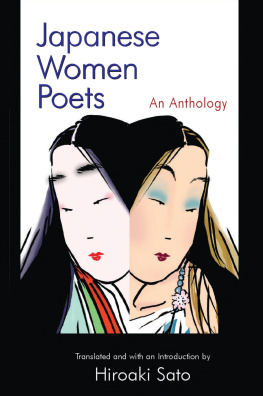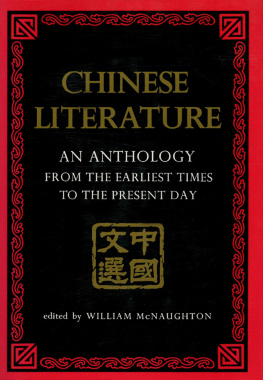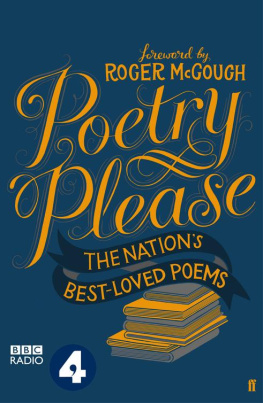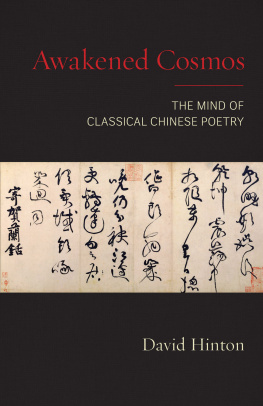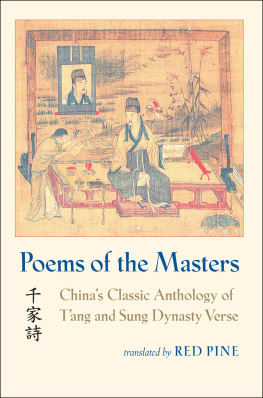AUTUMN WILLOWS Poetry by Women of Chinas Golden Age translated by Thomas Cleary and Bannie Chow
Foreword Poetry and song, loved by all peoples, are among the most basic timbers of human civilization, found everywhere and raised to high degrees of refinement in the great cultures of ancient Africa, India , and Asia . The heart and mind of China , the oldest living civilization in the world, have been nurtured for millennia by feelings and ideas captured in the gossamer nets of poetry and song. Ancient Chinese sages taught poetry and song for the cultivation and refinement of emotions, but word-music also came to conceal many other treasures as well, treasures of knowledge, of wisdom and of spirituality. The long, convoluted history of China is marked by a succession of imperial dynasties, each with its own political and cultural identity. The apogee of Chinese civilization, the golden age of China 's culture, was reached in the glorious Tang dynas ty (618-905). steeped in the bri lliant literary and spiritual milieu of the era, Tang dynasty poetry stands out as an advanced art, highly refined yet still youthful and robust even as it reached a distinguished maturity.
Among the greatest poets of the Tang were a number of women whose work gained highest acclaim even in the lofty atmosphere of the magnificent cosmopolitan Tang culture. Although it was a patriarchal society, in Tang China women were considerably freer than in later times. Women could divorce on their own initiative, divorcees and widows could freely remarry, and married women might have paramours. Although excluded from the civil service system, many women were educated and literate. The barbaric custom of foot-binding, for a thousand years the arch symbol of suppression of women, had not yet been invented in the Tang dynasty. It was in this setting that three of the greatest poetesses of China , perhaps of the world, lived and worked.
The sheer beauty of their poetry bespeaks the richness of their inn er and outer world, yet the poignant tragedy of their lives also tells of the shadows that were to destroy the Tang civilization and enshroud China in centuries of ever-growing militarism and repression. Li Ye, Xue Tao, and Yu Xuanji all lived in the mid Tang dynasty. Li Ye was a Taoist priestess, said to have been comely, calm, artistic, and musical. Li Ye was also forthright and fearlessly critical of the powers that be; as a result, very few of her poems have been preserved. According to one of the typically sparing accounts of her life, Li Ye was ultimately murdered at the order of the emperor. Xue Tao was sold into slave ry to work as an entertainer in government service .
Originally from a free family of the capital city, the exceptionally talented Xue Tao was taken into slavery as a girl when her father fell on hard times. Sent to various places to entertain military leaders, Xue Tao is said to have served in no less than eleven satrapies and matched verses with many of the greatest poets of the time. In spite of the many hardships she endured, Xue Tao lived to the age of seventy-five. Yu Xuanji, also a Taoist priestess, is perhaps the most famous and most tragic of the famous poetesses. Ravishingly beautiful and exquisitely sensitive, she entered Taoist orders at the age of sixteen. Her remarkable poetry attracted the attention of the literati, and she had a number of lovers from among the intelligentsia.
Pursued by countless other suitors, however, including many unworthy individuals, she eventually despaired and turned, it is said, to Sapphic love. In a story that, like much of official Chinese history, is biased and improbable in the detail and manner of its telling, the priestess was ultimately accused and convicted of beating her maid and alleged lover to death in a fit of rage, and was herself summarily executed while still a young woman. Because the massive oppression of women in China snowballed a fter the fall of the Tang dynast y a nd the rise of regional warlords , the lurid tale of Yu's death is remembered even when her exquisite poetry is forgotten, compounding the tragedy of her judicial murder for many generations to come. Later Chinese scholars and Confucian historians, serving the interests of the ruling elites, could not cope with the images of free women like these Taoist priestesses. The songs of parting and longing that mark the works of these great poetesses of Tang are therefore not simply mirrors of personal feeling; poignant, artful, and yet austere, filled with hidden insights, they are like autumn willows, farewells to an era of innocent joy.
Poems by Li Ye
Springtime Bedroom Lament The fruits are red already on the peach trees over the rail, the peach trees there surrounding the hundred fathom well.
I think of you up north, sent off to the war, leaving me behind perhaps forever more.
From a Sickbed, rejoicing in a friend's arrival Many were frosty moons in the past; Now I suffer in fog and mist. Although I get to meet you I'm still sick abed; Even as I try to greet you tears fall first instead. Urged to drink the wine of Tao, I respond with a verse you may know. By accident were tipsy now; where else is there to go?
Parting on a Moonlit Night Silent shines the moon on lovers speechless as they part; light is in the lunar orb, feelings are in the heart.
Sending off a Friend Whenever my gaze falls on the willows, the sorrow of parting will always be there.
Sending off a Friend Whenever my gaze falls on the willows, the sorrow of parting will always be there.
Endless, the waters of West River ; how will your lone boat fare? Even the tide only reaches so far; after a point, news must be rare. Messenger birds will nonetheless fly; year after year, again they will try.
Willows I love most the slender willows along the winding stream; the evening sun shifts their shadows over the aquamarine. The eastern breeze colors the world again with its yearly green; a traveler abroad is saddened more by the distance from home this spring. Low hanging leaves already hide oars plied along the shore; the upper branches are shutting in the people on upper floors.
A Taoist Message to an official Don't get attached to fame that wont last; better to trim a bureaucrat's whims.
A Taoist Message to an official Don't get attached to fame that wont last; better to trim a bureaucrat's whims.
A centurys like a day and a night; things of the past are now gone from sight. Worry streaks the hair with grey, yet a youthful face is not all the way; nowhere i s better than India where you can resort to old Buddha.
T o a Friend in the Secretar iat In this peaceful province the year is coming to an end; I wonder how your offices are when they are empty then. The distant waters buoy the rafts of the immortals; cold stars accompany the chariots of officials. When you pass by the Cliff of Giant Thunder don't forget these few lines I've written in my letter.
On Receiving a Letter Into my looking glass I moodily gaze, lazily combing my hair; in the evening rain and whistling wind my garden trees grow bare.
Its no wonder I weep on seeing your fine calligraphy; its only because I'm sad to be reading a letter from you to me.
Rose Blossoms Green stems merging with crimson blossoms have no strength to stand; leaning over the balustrade, they seem to show their pride. Deepest folds the finest, their scent lures butterflies; picking them, beware the flames of their springtime fire. Skillfully weaving a delicate veil in the open air, on the ground they spread a quilt like brocade lying there. They're best viewed at early dawn, covered with the dew; out my window, emerald draped, another blooms anew!
To a Friend Gazing over the waters, I try to climb the peaks; lofty are mountains, and broad indeed the lakes. In our thoughts of longing there's no day or night; months and years have passed as we wish and wait.
Next page

